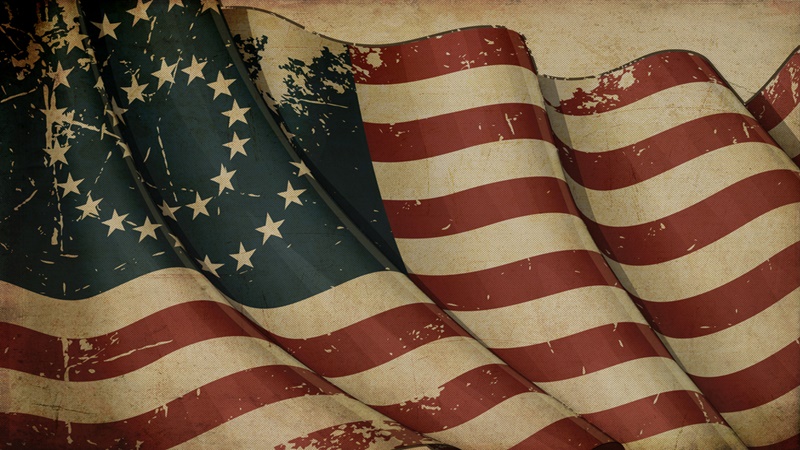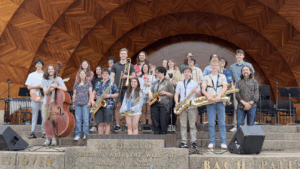By Mandy Rosenberg ’20
Starting in the 2019-2020 school year, the Beverly Middle and High Schools shifted their history classes to fit new department standards. These standards focus on reshaping how we learn history, to encourage students to engage critically, and potentially putting forth a standardized test. In order to implement these changes, which enforced the inclusion of an eighth grade civics class, the High School History Department moved United States classes down a grade level, leaving World History to be taught in junior year. This decision was made based on the notion that students would be able to apply concepts they learned in civics to United States History.
To discover more about the implementation of the new Massachusetts History standards, I conducted an interview with the head of the History Department at Beverly High School, Mrs Hoeffner:
What classes did you teach last year and are expecting to teach next year?
EH: I normally teach US History II and AP World History. I expect to teach US History II next year.
Why have the US History classes shifted down a grade level to leave World History for juniors?
EH: The state Dept. of Ed. passed new curriculum standards for K-12 instruction. The state put the emphasis on Civics being taught in 8th Grade. The curriculum guide then lists the standards for US history and for World History. We are shifting the curriculum around to address the new order of standards. While the state does give some flexibility to how schools cover the standards, the BHS Social Studies Dept. agreed that this new order would be best for our students. This way, the US I class could build off of what the students learned in 8th Grade, and the US II class could build off of what they learned in 9th grade. The state has indicated that there will eventually be some type of History MCAS. The feeling is that it could be in the form of a project or portfolio, instead of a written test like in other subjects. The feeling is that it will also focus on US History. By making these changes, we are trying to help all students have the most opportunities to fulfill this requirement.
I read that “The new standards ‘reflect the diversity of the United States and world cultures, with particular attention to the contributions of women and men of all ethnicities and backgrounds in the United States and the connections among world cultures,’” From your experience as department head, how accurately are these standards being incorporated to their purpose? https://www.google.com/search?q=The+MA+Dept+of+Education+(DESE)+published+new+Social+Studies+Curriculum+Standards+last+year+for+grades+K-12.&oq=The+MA+Dept+of+Education+(DESE)+published+new+Social+Studies+Curriculum+Standards+last+year+for+grades+K-12.&aqs=chrome..69i57j69i64.403j0j7&sourceid=chrome&ie=UTF-8
EH: I think as a Dept. we have always tried to bring in different voices and different perspectives into our classes. The old standards also reflected some diversity, but women’s issues, minority issues, and LGBTQ+ issues are more explicitly stated in the new standards. We are still in the early phases of implementing the new curriculum, so I can’t fully speak to how accurately they are being incorporated. I know that teachers had activities planned that the pandemic got in the way of. It’s probably going to take a couple of years for teachers to fully implement everything in the new standards. That is not unusual when teaching a new class, and everyone is trying their best.
Are these standards something the teachers agree with and are happy to teach to?
EH: I think everyone wants to teach the best history class that they can. I haven’t heard anything negative about the standards themselves. The bigger challenge is teaching all of the standards and the debate of depth or breadth. Both the US and World History standards are packed with topics that we need to teach, so we need to be creative in how we address it all.
Is there any way which this could affect the student AP History Courses?
EH: There is always a chance that it could affect the AP History courses, but I don’t think there should be any drastic changes. We normally have 2 sections of AP World for Grade 10 and 2 sections of AP US for Grade 11. Now, students will have the opportunity to take AP US in grade 10 and AP World in Grade 11. Next year, there will probably be more sections of AP US since it is open to grades 10 & 11, and AP World will not run since we are in this transition. The following year, I expect both AP US and AP World to run. Our students have done very well in both classes and I expect that to continue.
Have you heard of any potential that there will be a social studies standardized test that students will need to pass high school? If so, what are your thoughts?
EH: As I stated above, there is talk of a potential social studies state assessment in the works. Without knowing what the assessment will look like or cover, I don’t have any comments at this time. I will say that when the state got rid of the Social Studies MCAS years ago, Social Studies curriculums seemed to take a back seat (especially at the elementary level) to English, Math, & Science, since those subjects all had a state test. This is not a criticism of Elementary teachers in Beverly or anywhere else. This has happened in many states, and to many subjects. Resources were focused on subjects and exams that students needed to pass for graduation or other state requirements. MA now seems to realize that teaching history and civics is just as important, so hopefully some focus will return to the social sciences.
After learning about the History Department’s new standards and system, I asked Mia Occhino a freshman at BHS, about her experience and effectiveness when it applies to the new standards:
Who were the major figures/events that your history class focused on for the average part of the year?
MO: My history class focused on a general timeline of the United States beginning at European colonization of the Americas, and it seems that our last unit will most likely cover the expansion of American industry up to the beginning of the twentieth century. Some events and time periods that I remember spending a good amount of time learning about are the beginning of the thirteen colonies, the French and Indian War, the American Revolution, the creation of the Constitution, westward expansion, the Civil War and Reconstruction.
Did you enjoy history this year? And what about your classmates? Are there any notable moments where the class shared a feeling of enthusiasm or apathy?
MO: I would say that overall, I mostly enjoyed history this year and I would say the same for many of my classmates. Personally, I do not remember any particularly notable or striking moments of enthusiasm or apathy for my class.
Do you feel as if you would have had a stronger understanding of these events if you took a U.S. civics class prior? (assuming that you had not in eighth grade)
MO: We spent some time in my US 1 class discussing different aspects of United States civics and government, including how the government works between the three branches, the Constitution, our rights as citizens, etc. I think a US civics class taken prior would have definitely covered more in-depth information, but what we learned in my class was enough to provide a good understanding.
Do you feel your US 1 class and teachers taught to “reflect the diversity of the United States and world cultures…?” If so, in what ways. Did the focus or purpose in the classroom shift from which you were taught in previous years?
MO: I personally feel that my US 1 class was taught in the same way as any traditional history class, with no real shift in the class’s q or purpose. We learned about the diversity of the United States between different regions, but not as much about world cultures.
As of now, there is no standardized test required to take History. However, to emphasize History’s importance, particularly regarding the implementation of the new standards, a student may foreseeably need to take a history test in order to graduate. Do you have any thoughts on the implementation of a Social Studies standardized test?
MO: In my opinion, a Social Studies standardized test is not the best way to accurately reflect students’ knowledge and understanding of history. A student’s performance on a standardized test based on the memorization of historical facts and dates does not necessarily correlate with his or her understanding.
*Is there anything you want to ask the History department head?
MO: If I took US 1 this year and I am taking APUSH next year, will I have to take US 2 my junior year?
The Ledger thanks Mrs. Hoeffner and Mia Occhino.



